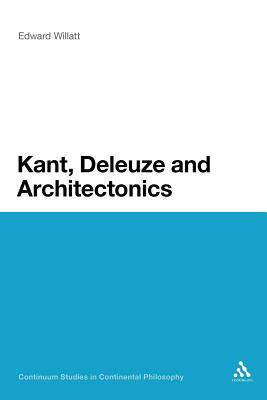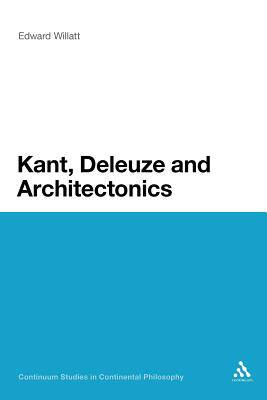
- Retrait gratuit dans votre magasin Club
- 7.000.000 titres dans notre catalogue
- Payer en toute sécurité
- Toujours un magasin près de chez vous
- Retrait gratuit dans votre magasin Club
- 7.000.0000 titres dans notre catalogue
- Payer en toute sécurité
- Toujours un magasin près de chez vous
Description
The way in which we read Kant's Critique of Pure Reason has profound consequences for our understanding of his thought in relation to the work of other thinkers. Kant, Deleuze and Architectonics presents a unified reading of this text in order to respond to the concerns surrounding the method and arguments Kant employs.
In showing us how the 'first critique' comes to make greater sense when read as a whole or in terms of its 'architectonic' unity, Edward Willatt breathes new life into a text often considered rigid and artificial in its organisation. On the basis of this reading, Kant's relation to Deleuze is revealed to be much more productive than is often realized. Deftly relating the unifying method of Kant's Critique of Pure Reason with Deleuze's account of experience, and using Kant's concern to secure the conditions that make experience possible to develop Deleuze's attempt to convincingly relate 'the actual' and 'the virtual', this book constitutes an important step in our understanding of Deleuze and his philosophical project.Spécifications
Parties prenantes
- Auteur(s) :
- Editeur:
Contenu
- Nombre de pages :
- 192
- Langue:
- Anglais
- Collection :
- Tome:
- n° 33
Caractéristiques
- EAN:
- 9781441134479
- Date de parution :
- 07-05-12
- Format:
- Livre broché
- Format numérique:
- Trade paperback (VS)
- Dimensions :
- 156 mm x 234 mm
- Poids :
- 272 g

Les avis
Nous publions uniquement les avis qui respectent les conditions requises. Consultez nos conditions pour les avis.






